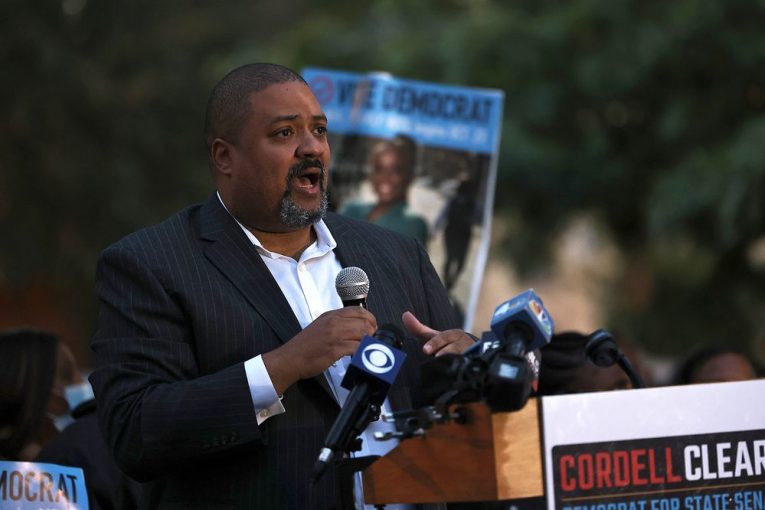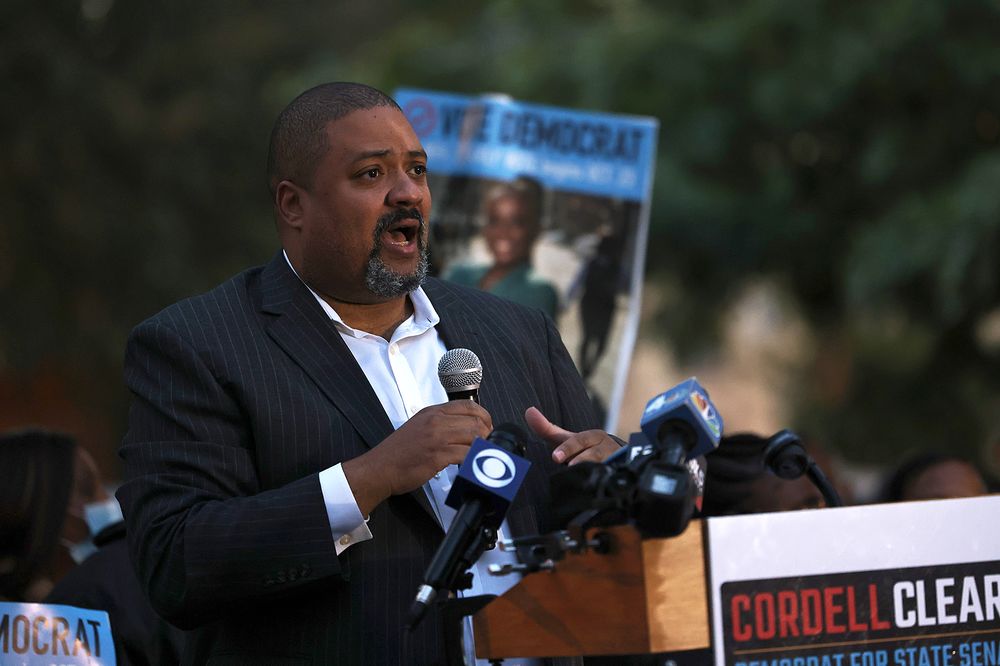

By Catherine Hamilton, Catherine Potente and Srimathi Kannan
MANHATTAN, NY – District Attorney Alvin Bragg, Jr.—who’s had some rocky times since he took officer Jan. 1—announced this week the Manhattan District Attorney’s Office has created its first Pathways to Public Safety Division (“Pathways”) to increase public safety and provide incarcerated individuals the necessary services to decrease repeat offenses.
Pathways, said DA Bragg, will allow the office to seek alternatives to incarceration and will place a prosecutor in the six trial division bureaus to identify offending individuals who would better benefit from programming over incarceration without risking public safety, according to the press release from the Office.
“Pathways will provide prosecutors with support and resources from screening through sentencing, incorporating alternatives to incarceration into the bedrock of the Office’s work,” D.A. Bragg said.
“That means identifying candidates for programming as early as possible, while closely monitoring an individual’s progress throughou— ensuring accountability instead of a revolving door,” he added.
The Pathways prosecutors in the Trial Division bureaus will be a resource throughout the length of each case, with incarceration still an available prospect for serious and violent crimes, the DA explained.
“The new Pathways to Public Safety Division is a vital measure for reducing recidivism and making our borough safer,” said State Senator Brad Hoylman. “I applaud District Attorney Bragg for leading with this innovative approach, and I’m confident this initiative, with Division Chief Sherene Crawford at the helm, will successfully attack the root causes of crime.”
“The creation of District Attorney Bragg’s Pathways to Public Safety Division will help proactively identify opportunities for diversion at the beginning stages of a case, instead of days, even months after their arrest, thereby increasing both effectiveness and safety,” said Council Member Carmen De La Rosa.
Pathways will join the Office’s Trial, Investigation, and Appellate Divisions. Sherene Crawford, an Assistant D.A. in Manhattan from 2009 to 2014, will serve as the Division Chief. As A.D.A., she specialized in cybercrimes, public assistance fraud, domestic violence, and sex crimes.
“(This program) will promote consideration of all reasonable evidence-based options to hold people accountable and promote rehabilitation,” said Jonathan Lippman, former chief judge of New York State and current chair of the Independent Commission on New York City Criminal Justice and Incarceration Reform.
“Incarceration is appropriate in certain cases, particularly those involving violence,” Lippman continued. “However, the best route to safety is very often via community-based dispositions that aim to address people’s underlying problems and break the cycle of recidivism.”
DA Bragg’s new term has been marked with controversy since he began on Jan. 1, but the creation of a new division is his newest development.
Bragg was involved in controversy last month as he ordered prosecutors to demote certain charges to lesser charges and not charge certain crimes whatsoever.
News 4 New York stated, “Among the most controversial of those changes was an order not to prosecute some instances of resisting arrest, and another mandating that felony armed robbery be downgraded in many cases to misdemeanor shoplifting.”
Bragg’s order came about due to the rising crime rates in New York City along with shooting incidents doubling.
According to News 4 New York, “In the NYPD’s Patrol Borough Manhattan North, major crimes are up 23 percent this year versus the same period last year, led by a 43 percent increase in robberies.”
Bragg’s controversial order was met with major pushback, which was led by a widow of an NYPD officer who was killed by gunman while being discharged to a domestic disturbance call in Feb.
Bragg released a letter on Feb. 4 to clear up the confusion regarding his controversial order.
Bragg’s letter clarified that violent attempts against any police will not be tolerated and will be prosecuted.
The letter stated that robberies with weapons and gun possession cases would be considered felonies.
“The January 3rd Memorandum was intended to provide ADAs with a framework for how to approach cases in the best interest of safety and justice. Our collective experience, however, has been that the Memorandum has been a source of confusion, rather than clarity,” Bragg stated in the letter.
“A commercial robbery at knifepoint, or by other weapon that creates a risk of physical harm, will be charged as a felony. In retail thefts that do not involve a risk of physical harm, the Office will continue to assess the charges based on all of the aggravating and mitigating circumstances presented,” Bragg’s letter said.
Bragg further clarified that those possessing guns will be prosecuted.
The clarification letter stated, “Gun possession cases are a key part of our plan for public safety. People walking the streets with guns will be prosecuted and held accountable. The default in gun cases is a felony prosecution. We also will use gun possession cases as an opportunity to trace the sources of illegal guns and build cases against gun traffickers.”
Brag’s new “Pathways” program is getting plaudits from throughout the city and further.
“I commend DA Bragg for honoring his campaign commitment to invest in programs that can help turn peoples’ lives around and truly make our communities safe in the long run,” said Janos Marton, National Director of Dream Corps JUSTICE.
Marton added, “By making it an office priority to intervene in cases early and put people into contact with the services they need, we can move past the broken system of cycling people in and out of jail.”
“We applaud DA Bragg’s decision to create the Pathways to Public Safety Division, which will help the office significantly expand its use of alternatives to incarceration, restorative justice practices, and reentry supports by using evidence-based solutions to address public safety needs,” said Julian Harris-Calvin, program director, Greater Justice New York, Vera Institute of Justice.
Harris-Calvin added, “Diversion programs improve community safety by helping to reduce future involvement with the criminal legal system while preventing the trauma and long-term harms of incarceration, all at a fraction of the cost.”
“Exodus Transitional Community looks forward to working alongside the Pathways to Public Safety Division within the Manhattan DA’s Office,” said Kandra Clark, VP of Policy & Strategy at Exodus. “We know first-hand the power of alternatives to incarceration and diversion services.”
“For far too long, we have failed as a City and Country with respect to our criminal legal system. Instead of addressing the root causes of incarceration (untreated mental health, substance use disorders, trauma, lack of education and employment opportunities), we often use punitive incarceratory sentences that only make our communities less safe over time,” Clark noted.
“DA Bragg understands the importance of community safety and how diversion & alternative programs enhance our communities and reduce recidivism! We look forward to working closely with DA Bragg and his team, as well as all our community partners to ensure all people have a fair chance at diversion and receiving the support they truly need. Healing Communities and Restoring Hope.” Clark said.
“Osborne Association is deeply supportive of using diversion and ATI options as early as possible and at every opportunity, while being intentional about not widening the net of Court supervision unnecessarily,” said Osborne Chief Program Officer Susan Gottesfeld.
“The Center for Court Innovation applauds D.A. Bragg’s creation of a new division within his office to provide eligible individuals with alternatives to incarceration and necessary services, and we look forward to working with his team to reduce recidivism and increase community safety,” said Courtney Bryan, executive director of the Center for Court Innovation.
“CASES commends District Attorney Bragg for his commitment to utilizing evidence-based alternatives to incarceration and his creation of the Pathways to Public Safety Division,” said Joel Copperman, CEO/President of CASES. “Since 1967, CASES’ programs have provided alternatives to incarceration proven to support significant reductions in recidivism compared to jail and prison.”
“The Pathways to Public Safety Division will secure dynamic, individually tailored outcomes that are proven to keep our communities safe while giving our fellow New Yorkers the help they need,” said D.A. Bragg. “By identifying opportunities for diversion at the beginning stages of a case, instead of weeks to months after an arrest, we can increase effectiveness and break cycles of recidivism.






